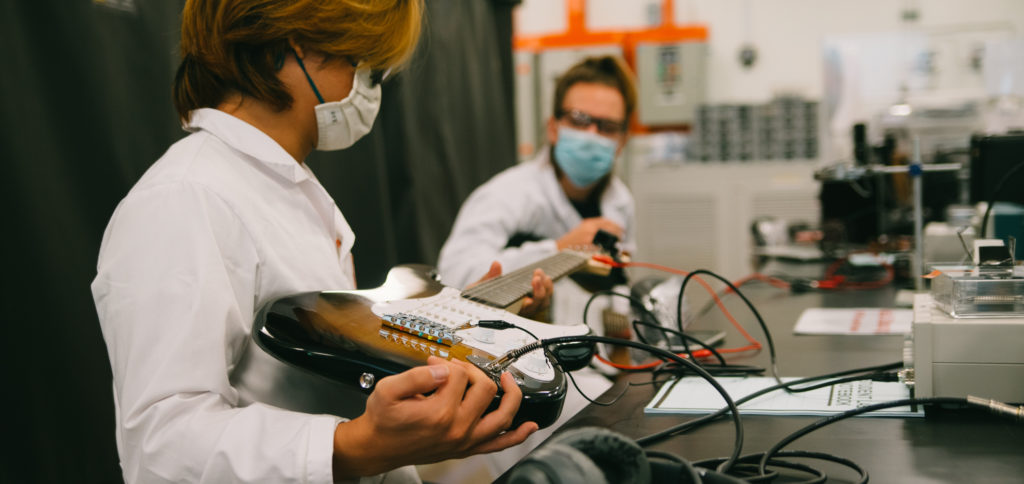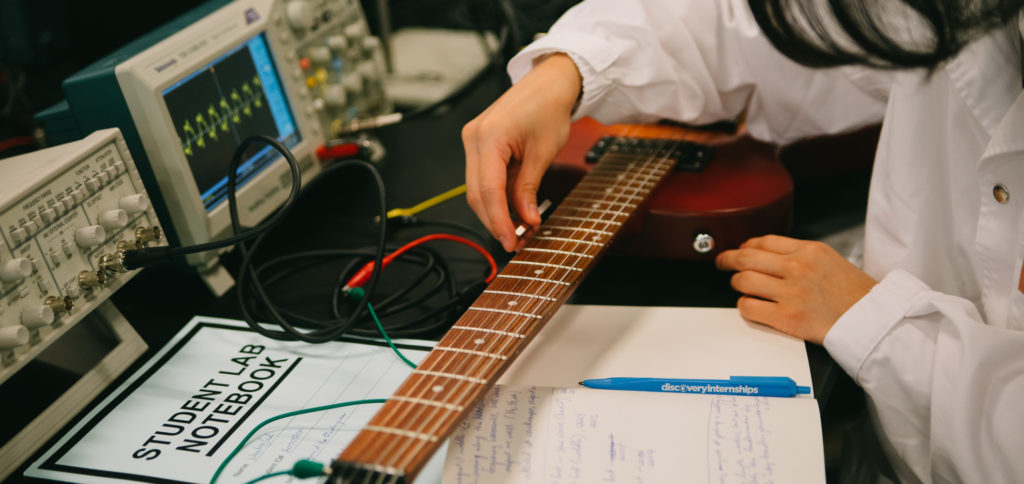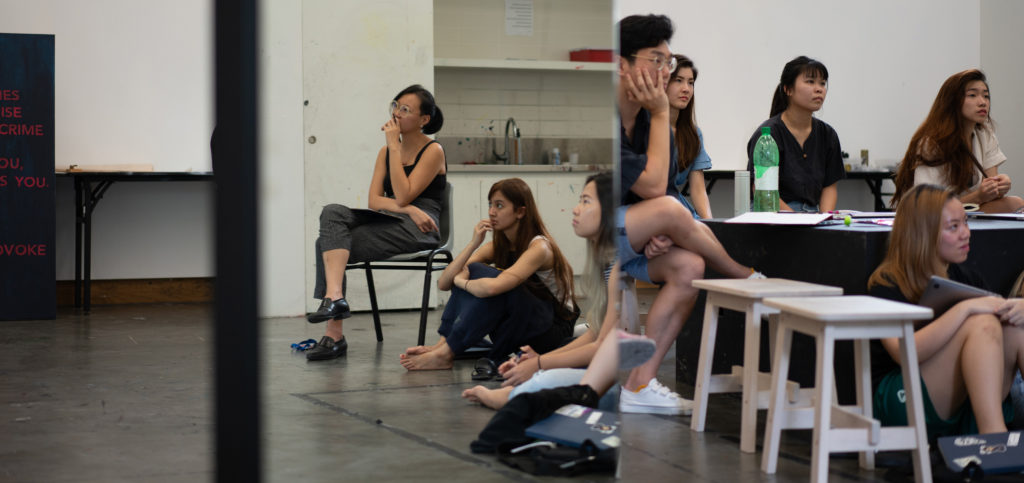Practical learning at Yale-NUS College amidst COVID-19
At Yale-NUS College, students are exposed to a variety of classroom teaching styles – intimate seminars, big group lectures, and practice-based and laboratory classes. In practice-based and laboratory classes, students engage in hands-on work as they perform science experiments or develop practical skills. In spite of the COVID-19 challenges this semester, classes with practical components continue to be offered with the help of some innovative teaching methods.
One such course is Physics of the Electric Guitar taught by Associate Professor of Science (Physics) Andrew Bettiol. Through the course, students will be introduced to fundamental concepts of physics by understanding how an electric guitar works. This includes elements of classical mechanics, electromagnetism and electronics. In this class, students learn via mini-lectures, participatory discussions and hands-on experimentation with electric guitars.
As part of the National University of Singapore (NUS)’s precautionary measures to minimise over-crowding and intermingling, zones have been created on NUS campuses. Assoc Prof Bettiol and his students are within different zones, so he is not able to meet them in-person. To overcome this challenge, Assoc Prof Bettiol has made creative modifications to his course delivery so the laboratory sessions can continue. He gives his lectures and guidance over Zoom, while the students are in the laboratory with Laboratory Executive Ms Sim Joo Huang who supports students with their technical work.

 Students doing their technical work at the laboratory for the Physics of the Electric Guitar course. Images taken by Darren Ang for Yale-NUS College.
Students doing their technical work at the laboratory for the Physics of the Electric Guitar course. Images taken by Darren Ang for Yale-NUS College.
“During participatory discussions, students are able to ask me questions using a Bluetooth microphone that is placed in the middle of the laboratory. Thus far, this has worked well and I am able to communicate seamlessly with the students. Compared to a regular class setting where I may be assisting a singular student at any one point in time, this arrangement has an added advantage that everyone can hear my answers,” said Assoc Prof Bettiol.
Additionally, in order to ensure that students’ learning experiences are fully maximised, Assoc Prof Bettiol has personally invested in equipment and a professional sound system for his home so he can set up the experiments at home. All of these measures have meant that classes are seamless, efficient and effective.
“With the equipment, I can set up the experiments at my home and mirror what students do in the laboratory. This way, I can perform the experiments myself and test the components on my guitar,” he added.
Zirdi Syukur (Class of 2023), one of the students in the class, echoed this, “Although this arrangement is unconventional, the presence of Ms Sim in class and the good sound system has enabled the class to be pretty functional. Although there were some technical difficulties at the start, they have now been resolved. Overall, all of these safety measures and technical solutions are well worth the effort as I find the hands-on laboratory work crucial to the goals of this class.”
Another hands-on class this semester is Drawing Methods taught by Lecturer of Humanities (Visual Arts) Dr Yanyun Chen. In this class, students are introduced to drawing skills and techniques, concepts, and practices involved in contemporary drawing and exhibition making. Over the semester, they will develop a portfolio of drawings with personal guidance from Dr Chen and this will culminate into a final college-wide exhibition.
 Dr Chen Yanyun (first from left) at her Drawing Methods class in 2018. Image provided by Dr Chen.
Dr Chen Yanyun (first from left) at her Drawing Methods class in 2018. Image provided by Dr Chen.
Teaching and learning takes place entirely in the art studio. Similar to Assoc Prof Bettiol’s class, Dr Chen has had to make some special adjustments to her usual teaching plan. Due to safe distancing measures, she split a single class into two smaller groups; the groups are in two separate studios, where their start times are staggered by an hour.
“What this unique arrangement means is that I will deliver the first hour of lecture to one group, leave them with an assignment to tackle based on what was discussed, then hop over the second group to do the same, then back again. If a student is serving Stay-Home Notice, I find time over the weekends to deliver the same class to them over Zoom,” she explained.
To maintain the stability of the class, Dr Chen decided against adopting a hybrid teaching method where some students are on Zoom and others are in class.
“This module involves a four-hour long studio class every week. In each class, there are a lot of hands-on exercises and assignments, and on-the-spot critique. I also do demonstrations to explain concepts that cater to individual students. This is something that cannot be replicated on Zoom since I’ll be speaking to a general audience instead,” Dr Chen explained.
Overall, although classes with practical components necessitate greater investment, compromise and hard work, it has proven to be an enjoyable learning journey for both students and the faculty members teaching it. Whether it may be investing in professional sound technology or shuffling between two concurrent class groups over a five hour stretch, Assoc Prof Bettiol and Dr Chen are wholly committed to ensure students experience the modules as fully as they would in a regular semester.





